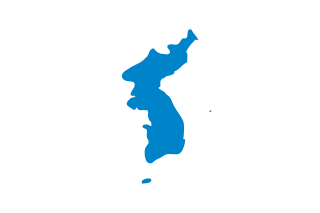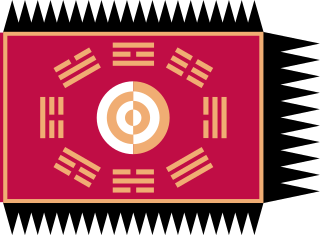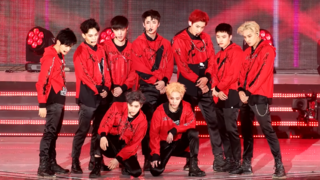Timeline

This page provides the list of members - incumbent and previous - of cabinet, or State Council, of South Korean President Park Geun-hye.

| Portfolio | Member | Term | Note | ||
|---|---|---|---|---|---|
| Took office | Left office | ||||
| President | Park Geun-hye | 25 February 2013 | 10 March 2017 | ||
| Prime Minister | Chung Hong-won | 26 February 2013 | 16 February 2015 | ||
| Lee Wan-koo | 16 February 2015 | 27 April 2015 | |||
| Hwang Kyo-ahn | 18 June 2015 | 11 May 2017 | |||
| Deputy Prime Minister of Economy Minister of Strategy and Finance | Hyun Oh-seok | 23 March 2013 | 14 July 2014 | ||
| Choi Kyoung-hwan | 15 July 2014 | 12 January 2016 | |||
| Yoo Il-ho | 13 January 2016 | 9 June 2017 | |||
| Deputy Prime Minister of Social Affairs Minister of Education | Seo Nam-su | 11 March 2013 | 16 July 2014 | ||
| Hwang Woo-yea | 8 August 2014 | 12 January 2016 | |||
| Lee Jun-sik | 13 January 2016 | 4 July 2017 | |||
| Minister of Science, ICT and Future Planning | Choi Moon-ki | 17 April 2013 | 15 July 2014 | ||
| Choi Yang-hee | 16 July 2014 | 10 July 2017 | |||
| Minister of Foreign Affairs | Yun Byung-se | 13 March 2013 | 18 June 2017 | ||
| Minister of Unification | Ryu Gil-jae | 11 March 2013 | 12 March 2015 | ||
| Hong Yong-pyo | 13 March 2015 | 2 July 2017 | |||
| Minister of Justice | Hwang Kyo-ahn | 11 March 2013 | 13 June 2015 | ||
| Kim Hyeon-woong | 9 July 2015 | 28 November 2016 | |||
| Minister of National Defense | Kim Kwan-jin | 4 December 2010 | 29 June 2014 | ||
| Han Min-goo | 30 June 2014 | 13 July 2017 | |||
| Minister of the Interior | Yoo Jeong-bok | 13 March 2013 | 6 March 2014 | ||
| Kang Byeong-gyu | 2 April 2014 | 15 July 2014 | |||
| Jeong Jong-seob | 16 July 2014 | 12 January 2016 | |||
| Hong Yoon-sik | 13 January 2016 | 16 June 2017 | |||
| Minister of Culture, Sports and Tourism | Yoo Jin-ryong | 11 March 2013 | 16 July 2014 | ||
| Kim Jong-deok | 20 August 2014 | 4 September 2016 | |||
| Cho Yoon-sun | 5 September 2016 | 20 January 2017 | |||
| Minister of Agriculture, Food and Rural Affairs | Lee Dong-phil | 11 March 2013 | 4 September 2016 | ||
| Kim Jae-soo | 5 September 2016 | 2 July 2017 | |||
| Minister of Trade, Industry and Energy | Yoon Sang-jik | 11 March 2013 | 13 January 2016 | ||
| Joo Hyeong-hwan | 13 January 2016 | 21 July 2017 | |||
| Minister of Health and Welfare | Chin Young | 11 March 2013 | 29 September 2013 | ||
| Moon Hyeong-pyo | 2 December 2013 | 26 August 2015 | |||
| Jeong Jin-yeop | 27 August 2015 | 21 July 2017 | |||
| Minister of Environment | Yoon Seong-gyu | 11 March 2013 | 5 September 2016 | ||
| Cho Gyeong-gyu | 5 September 2016 | 4 July 2017 | |||
| Minister of Employment and Labor | Bang Ha-nam | 11 March 2013 | 15 July 2014 | ||
| Lee Gi-gwon | 16 July 2014 | 24 July 2017 | |||
| Minister of Gender Equality and Family | Cho Yoon-sun | 11 March 2013 | 13 June 2014 | ||
| Kim Hee-jung | 16 July 2014 | 12 January 2016 | |||
| Kang Eun-hee | 13 January 2016 | 7 July 2017 | |||
| Minister of Land, Infrastructure and Transport | Seo Seung-hwan | 13 March 2013 | 13 March 2015 | ||
| Yoo Il-ho | 16 March 2015 | 10 November 2015 | |||
| Kang Ho-in | 11 November 2015 | 21 June 2017 | |||
| Minister of Oceans and Fisheries | Yoon Jin-sook | 17 April 2013 | 6 February 2014 | ||
| Lee Joo-young | 5 March 2014 | 24 December 2014 | |||
| Yoo Gi-june | 16 March 2015 | 10 November 2015 | |||
| Kim Yeong-seok | 11 November 2015 | 15 June 2017 | |||
| Minister of Public Safety and Security | Park In-yong | 19 November 2014 | 25 July 2017 | ||

Korea is a region in East Asia. Since 1945 it has been divided into two sovereign states: North Korea and South Korea. Korea consists of the Korean Peninsula, Jeju Island, and several minor islands near the peninsula. It is bordered by China to the northwest and Russia to the northeast. It is separated from Japan to the east by the Korea Strait and the Sea of Japan.

Korean is an East Asian language spoken by about 77 million people. It is the official and national language of both Koreas: North Korea and South Korea, with different standardized official forms used in each country. It is a recognised minority language in the Yanbian Korean Autonomous Prefecture and Changbai Korean Autonomous County of Jilin Province, China. It is also spoken in parts of Sakhalin, Russia and Central Asia.

The Korean War was a war between North Korea and South Korea. The war began on 25 June 1950 when North Korea invaded South Korea following clashes along the border and insurrections in the south. The war ended unofficially on 27 July 1953 in an armistice.

North Korea, officially the Democratic People's Republic of Korea, is a country in East Asia constituting the northern part of the Korean Peninsula. The country is bordered to the north by China and by Russia along the Amnok and Tumen rivers, and to the south by South Korea, with the heavily fortified Korean Demilitarized Zone (DMZ) separating the two. North Korea, like its southern counterpart, claims to be the legitimate government of the entire peninsula and adjacent islands. Pyongyang is the country's capital and largest city.

South Korea, officially the Republic of Korea, is a country in East Asia, constituting the southern part of the Korean Peninsula, and sharing a land border with North Korea. 25 million people, around half of the country's population of more than 51 million people, live in the Seoul Capital Area, the fifth-largest metropolitan area in the world.

Kim Jong-il was a North Korean politician who served as the second Supreme Leader of North Korea from 1994 to 2011. He led North Korea from the 1994 death of his father – Kim Il-sung, the first Supreme Leader – until his own death in 2011, when he was succeeded by his son, Kim Jong-un.

Kimchi, a staple in Korean cuisine, is a traditional side dish of salted and fermented vegetables, such as napa cabbage and Korean radish, made with a widely varying selection of seasonings including gochugaru, spring onions, garlic, ginger, and jeotgal, etc. It is also used in a variety of soups.

The Joseon dynasty was a Korean dynastic kingdom that lasted for approximately five centuries. It was the last dynasty of Korea and its longest-ruling Confucian dynasty, founded by Yi Seong-gye in July 1392 and replaced by the Korean Empire in October 1897. The dynasty was founded following the aftermath of the overthrow of Goryeo in what is today the city of Kaesong. Early on, Korea was retitled and the capital was relocated to modern-day Seoul. The kingdom's northernmost borders were expanded to the natural boundaries at the rivers of Amnok and Tuman through the subjugation of the Jurchens.

Between 1910 and 1945, the Empire of Japan placed Korea under Japanese rule or Japanese Occupation. Joseon Korea had come into the Japanese sphere of influence with the Japan–Korea Treaty of 1876, and a complex coalition of the Meiji government, military, and business officials began a process of integrating the Korean peninsula's politics and economy with Japan. The Korean Empire became a protectorate of Japan with the Japan–Korea Treaty of 1905; thereafter Japan ruled the country indirectly through the Japanese Resident-General of Korea. Japan formally annexed Korea in 1910 in the Japan–Korea Treaty of 1910, without the consent of the former Korean Emperor Gojong, the regent of the Emperor Sunjong. The Japanese Empire had established the Korean peninsula as a colony of Japan administered by the Governor-General of Chosen based in Keijō (Gyeongseong) which governed Korea with near-absolute power.
K-pop is a genre of popular music originating in South Korea. It is influenced by styles and genres from around the world, such as experimental, rock, jazz, gospel, hip hop, R&B, reggae, electronic dance, folk, country, and classical on top of its traditional Korean music roots. The more modern form of the genre emerged with the formation of one of the earliest K-pop groups, Seo Taiji and Boys, in 1992. Their experimentation with different styles and genres of music and integration of foreign musical elements helped reshape and modernize South Korea's contemporary music scene.
Korean television series or Korean drama, more popularly known as K-dramas, are television series in the Korean language, made in South Korea. Korean dramas are popular worldwide, partially due to the spread of Korean popular culture, and their widespread availability via streaming services which often offer subtitles in multiple languages. Many K-dramas have been adapted throughout the world, and some have had great impact on other countries. Some of the most famous dramas have been broadcast via traditional television channels in other countries. For example, Dae Jang Geum (2003) was sold to 91 countries.

Kim Jong-un is a North Korean politician serving as Supreme Leader of North Korea since 2011 and the leader of the Workers' Party of Korea since 2012. He is the second child of Kim Jong-il (1941–2011), who was North Korea's second supreme leader from 1994 to 2011, and Ko Yong-hui (1952–2004). He is a grandson of Kim Il-sung, who was the founder and first supreme leader of North Korea from its establishment in 1948 until his death in 1994.

Seoul, officially the Seoul Special City, is the capital and largest metropolis of South Korea. Seoul has a population of 9.7 million people, and forms the heart of the Seoul Capital Area with the surrounding Incheon metropolis and Gyeonggi province. Seoul was the world's 4th largest metropolitan economy in 2014 after Tokyo, New York City and Los Angeles. In 2017, the cost of living in Seoul was ranked the 6th highest globally.

Kim Il-sung was the founder of North Korea, which he ruled from the country's establishment in 1948 until his death in 1994. He held the posts of Premier from 1948 to 1972 and President from 1972 to 1994. He was also the leader of the Workers' Party of Korea (WPK) from 1949 to 1994. Coming to power after the end of Japanese rule in 1945, he authorized the invasion of South Korea in 1950, triggering an intervention in defense of South Korea by the United Nations led by the United States. Following the military stalemate in the Korean War, a ceasefire was signed on 27 July 1953. He was the third longest-serving non-royal head of state/government in the 20th century, in office for more than 45 years.

Lee Ji-eun, known professionally as IU (Korean: 아이유), is a South Korean singer-songwriter and actress. She signed with Kakao M in 2007 as a trainee and debuted as a singer at the age of fifteen with her first mini album Lost and Found. Although her follow-up albums, Growing Up and IU...IM, brought mainstream success, it was after the release of "Good Day", the lead single from her 2010 album Real, that she achieved national stardom. "Good Day" went on to spend five consecutive weeks at the top position of South Korea's Gaon Digital Chart, and in 2019, it was ranked number one on Billboard's "100 Greatest K-Pop Songs of the 2010s" list.

Exo is a South Korean-Chinese boy band based in Seoul, consisting of nine members: Xiumin, Suho, Lay, Baekhyun, Chen, Chanyeol, D.O., Kai and Sehun. The band was formed by SM Entertainment in 2011 and debuted in 2012. Their music—released and performed in Korean, Mandarin, and Japanese—primarily incorporates pop, hip-hop, and R&B, including elements of electronic dance music genres such as house and trap. The band ranked as one of the top five most influential celebrities on the Forbes Korea Power Celebrity list from 2014 to 2018 and have been labeled "Kings of K-pop" and the "Biggest boyband in the world" by various media outlets.

BTS, also known as the Bangtan Boys, is a seven-member South Korean boy band that began formation in 2010 and debuted in 2013 under Big Hit Entertainment. The septet—composed of RM, Jin, Suga, J-Hope, Jimin, V, and Jungkook—co-writes and co-produces much of their own output. Originally a hip hop group, their musical style has evolved to include a wide range of genres. Their lyrics, often focused on personal and social commentary, touch on the themes of mental health, troubles of school-age youth, loss, the journey towards loving oneself, and individualism. Their work features references to literature and psychological concepts and includes an alternative universe storyline. The group has released several albums and performed on several world tours.

The Korean alphabet, known as Hangul (Hangeul) in South Korea and Chosŏn'gŭl in North Korea, is a writing system for the Korean language created by King Sejong the Great in 1443. The letters for the five basic consonants reflect the shape of the speech organs used to pronounce them, and they are systematically modified to indicate phonetic features; similarly, the vowel letters are systematically modified for related sounds, making Hangul a featural writing system.

Blackpink is a South Korean girl group formed by YG Entertainment, consisting of members Jisoo, Jennie, Rosé, and Lisa. The group debuted in August 2016 with their single album Square One, which featured "Whistle" and "Boombayah", their first number-one entries on South Korea's Gaon Digital Chart and the Billboard World Digital Song Sales chart, respectively.